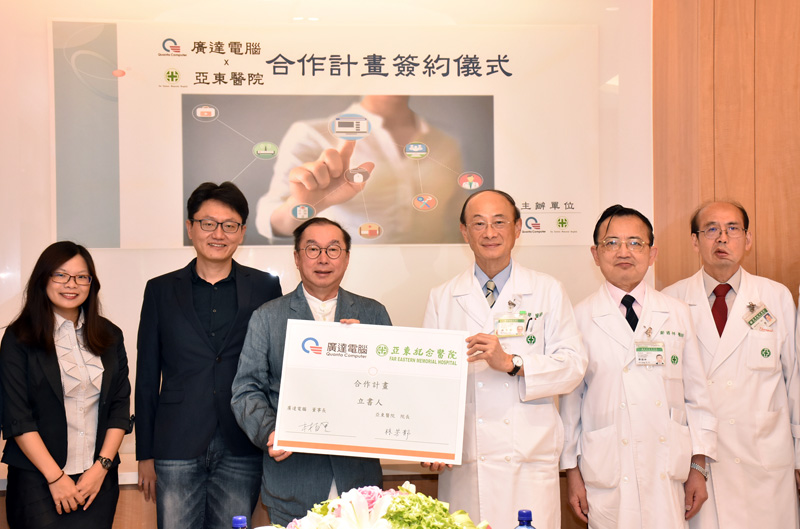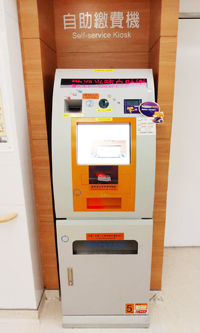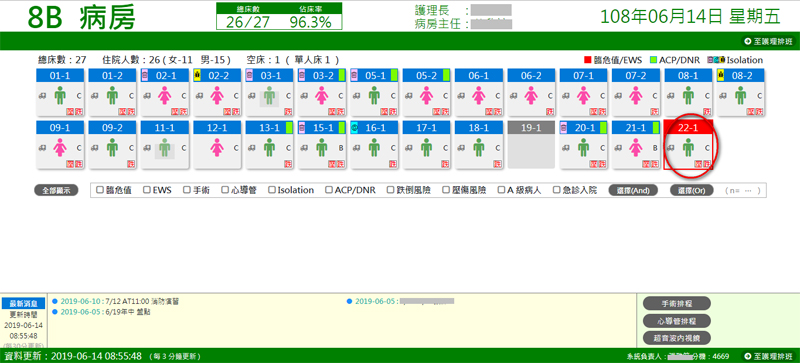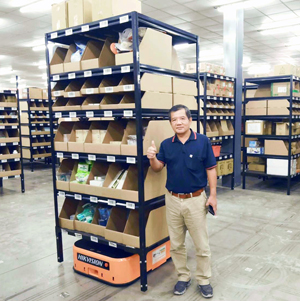07.2019 Cover Story
Intelligent Transformation enables Upgrading of Medical Care
Far Eastern Magazine / Editorial Room


Network connection to Construct Intelligent Hospital
The advent of the aging society and the shortage of medical and nursing manpower are two major problems in Taiwan's medical industry in recent years. Fortunately, the booming development of intelligent technology has brought new dawn to improve the quality and efficiency of medical care. Therefore, as early as the planning of the expansion project of the hospital, Far Eastern Memorial Hospital, aiming at building a smart hospital, actively cooperates with technology manufacturers, integrates databases, and uses digital and cloud-based networks to construct the Internet of things (IoT) for instruments and equipment.

It is worth mentioning that Far Eastern Memorial Hospital is also the first hospital in Taiwan to automatically upload physiological monitoring database for analysis and calculation. FEMH President Fang-Yue Lin said that EWS(Early warning Scores)can automatically upload the physiological data in 15 seconds and red, yellow and green are used to stand for high, medium and low risk respectively after calculation. It is presented on the electronic whiteboard to facilitate medical staff to identify the risk level and early intervention treatment. In addition, Far Eastern Memorial Hospital was awarded the Gold Prize in the Electronic Medical Record Innovative Application Service Promotion Competition held by the Health and Welfare Department for the establishment of Cloud Medical Record System, Blood Transfusion and Drug Checking System, Electronic Form and construction of Electronic Medical Record.

Realizing long-distance medical treatment by means of Production and school
Far Eastern Memorial Hospital and Far EasTone Telecommunication jointly launched “Health +” in order to improve the health care of discharged patients and community residents and to provide better treatment and health control for patients with chronic diseases. Patients at home can measure blood pressure and blood sugar, upload data to the hospital and the health manager can monitor immediately, if there are abnormalities, there will be prompt consultation. Since the launch of the service, nearly 400 people have used the home health management devices that are rented monthly. According to the statistics of members' medical treatment and medication, it has indeed produced substantial benefits for the control of chronic diseases.
As the telecommunication industry is about to enter the 5G era, President Lin hopes to further cooperate with Far EasTone Telecommunication to conduct telemedicine consultation at selected demonstration sites in downstream hospitals, and to cooperate with technology manufacturers to develop telemedicine solutions so that users can share measurements with doctors for instant video detection and reservation of video diagnosis, and cloud database can also use machine learning algorithm to develop pre-processing mode.


Intelligence Empowerment Unlocking Predictive Medicine
"In fact, the further development of intelligent medicine requires cross-border communication between medical and information professionals," Lin said. "If engineers can assist in developing labeling tools and analysis programs, physicians can perform symptomatic labeling and database analysis, and then through the establishment of artificial intelligence and in-depth learning modules, the accuracy and efficiency of diagnosis and treatment can be further improved."
Far Eastern Memorial Hospital has launched Collaboration between industry and school with Yuan Ze University, Acer, Quanta and US start-ups for this purpose, for example, through Big Data of Heart Failure Center Database and Health Care Database and combination with clinical care and nuclear myocardial scanning in patients with heart failure. The diagnosis of etiology and level of care will be improved. It will also be helpful to develop new biological indicators and home-based intelligent medicine in the future. On the other hand, the hospital should also use artificial intelligence to detect 6,000 chest CT images in two months, detect 9 clinical events, and scan 12,280 CXR, improving the accuracy. Normal image module and automatic report system have been integrated into the report making system of the Department of Medical Image. According to the classification of image diagnosis, various interpretation modules have been developed successively.
"The X-ray pneumonia diagnostic module of our hospital participated in the global AI competition in 2018, winning the 16th place among more than 1,400 teams and the first place in the whole Taiwan. However, President Lin is not complacent. In the future, he plans to retrospect about 1 million pieces of chest X-ray, head computed tomography and magnetic resonance imaging in the past few years. After removing personal information, medical staff will complete the labeling and send it to the artificial intelligence server for in-depth learning to produce the AI model. "In order to validate the AI model, we will compare 300 cases in which the physician labels the target features separately to confirm the predictive ability of the model. Then we will repeat the above steps for each target feature to develop a new model, establish a medical computer-aided classification system based on in-depth learning, and improve the reporting efficiency and image reporting quality. "
In addition to the active development of AI diagnostic projects by medical teams, it is felt that the application of AI in the medical industry is becoming more and more important. At the beginning of this year, the hospital has also opened "AI School" in cooperation with the Institute for Information Industry and Oriental Institute of Technology to strengthen the cross-border understanding of medical staff in order to continuously promote the innovation of intelligent medical care. The president also plans to co-ordinate related resources, set up artificial intelligence laboratory (AI Lab), appoint special analysts and engineers, and establish medical AI database to assist medical research.
In addition, with the wide application of new technologies such as Virtual Reality (VR), Augmented Reality (AR) and Mixed Reality (MR), voice and image recognition technology, machine in-depth learning technology are becoming more and more mature, and Far Eastern Memorial Hospital plans to introduce the application of virtual patient human-computer interaction and 3D printing step by step. The training of clinical skills, virtual reality first aid training, virtual clinical diagnosis and treatment training, operation simulation teaching and long-distance medical teaching will be carried out to improve the learning effect of medical personnel and the quality of medical technology and care.
"Developing smart hospitals is an opportunity to improve efficiency and patient safety. Taiwan has excellent medical standards and research and development capabilities of communication. As long as science and technology are combined with medical development, we can change and innovate the medical care model, so that smart medicine can create greater output value. President Lin is confident about the future of the medical industry, and this confidence will lead Far Eastern Memorial Hospital to the "Smart Hospital 4.0" road.



















